Talent Tightrope: Empowering Frontline Workers and Mid-Managers for a Stronger Workforce
today2023.05.03. 448

WHY SHOULD YOU CARE?
A recent McKinsey article highlights the need for organizations to tailor their employee experience to empower frontline workers and mid-managers. The main problems include poor retention rates and difficulty attracting top talent. The benefits of a tailored employee experience include improved retention rates, the attraction of top talent, and a workplace where people want to be.
COVID-19 pandemic has highlighted the necessity of organizations focusing on improving employee experiences for two key groups – frontline workers and mid-managers. McKinsey’s recent article entitled, “Talent Tightrope: Tailor Employee Experience to Support Two Key Groups“, describes how businesses can tailor employee experience so as to empower these groups, ultimately increasing workforce attraction, support, and retention.
The first step to improving the employee experience is: Evaluate current experiences. Through analytics, organizations can identify groups of workers whose current employee experiences fall short. Once identified, organizations can engage in dialogue with frontline workers and mid-managers to learn more about their specific challenges, needs, and expectations; then integrate this insight into an individualized strategy to create workplaces where people want to be.
Organizations must then design development-centric structures. Organizations should identify what resources and skills mid-managers require to excel in their role, while frontline workers require in order to advance professionally. By breaking down positions into essential responsibilities and providing learning and development opportunities that align, organizations can identify necessary skill sets while offering career pathways with clear progression paths for frontline workers within their company.
The third step is to promote flexibility. Flexibility may take many forms and look different for different employees; mid-managers may use purposeful presence when collaboration is required while frontline workers might redesign shift work to better support work/life balance. Organizations should consider structural changes that could promote greater flexibility for all.
Improvements to employee experience can benefit organizations both now and after economic uncertainty has subsided. By empowering frontline workers and mid-managers, organizations can create an engaging workplace experience where people want to be; this will not only improve retention rates but will also attract top talent to join.
Mid-managers fulfill a critical role in an organization’s long-term success. As the authors say: “middle managers act as key players in an organization’s competition for talent, they possess the granular knowledge and perspective necessary to lead the realignments resulting from digital disruption, and good managers must be given higher-value compensation instead of being promoted out of their jobs.”
Organizations must tailor employee experiences in order to effectively support frontline workers and mid-managers. By evaluating experiences, designing around development needs, and encouraging flexibility in the workplace, organizations can create an atmosphere in which people want to stay. This will improve retention rates, attract top talent, and ultimately benefit the organization long term.

Written by: Mihaly Nagy
Employee Engagement Employee Experience HR Strategy Leadership
Previous post

- 192
labelFeatured today2023.05.03.
Aligning Total Rewards with Culture and Performance: Insights from Bayer’s Transformation Journey
WHY SHOULD YOU CARE? In a recent conversation, Rahul Kalia, the Global Head of Performance, Culture, and Future of Work at Bayer, who will also be speaking at the HORIZON [...]
Similar posts

labelArticles today2024.07.24.
AI-Powered HR: Strategic Benefits and Practical Applications

labelArticles today2024.06.24.








Post comments (0)